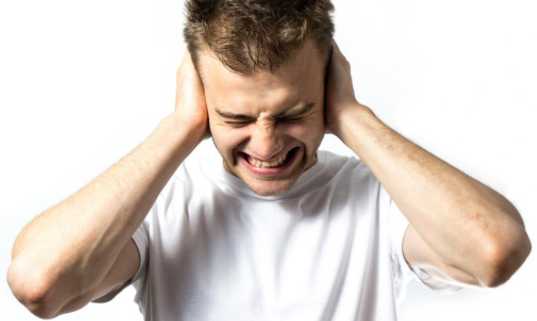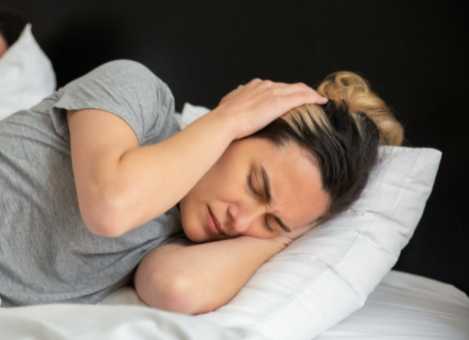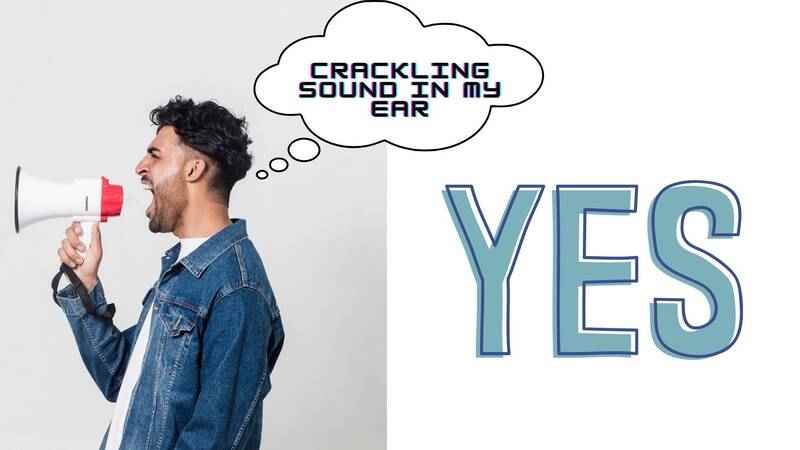As individuals, we have often experienced some unusual sensations and even crackling sound in ear.
A few of the instances may include buzzing, hissing, muffled hearing, and even ringing.
A crackling or popping sound in the ear is the one that is quite common.
Cracking in the ear when moving jaw is often compared to the sound made by a bowl of Rice Krispies after you have poured milk on them.
There are various conditions leading to the crackling sound in the ear.
Today, here in this article, we are going to explore the causes and symptoms of crackling sound in ear, its treatments, and when to consult a doctor.
Contents
What causes a crackling Sound in ear?

You might be undergoing one of the various conditions leading to the crackling sound in the ears as follows:
-
Eustachian tube dysfunction
The Eustachian tube in humans is quite a small, narrow tube that is connected to the middle portion of the ear to the back of your upper throat and nose. There is one tube present in each ear.
The following are the various functions that are made by the Eustachian tubes:
- It helps to keep the pressure equalized in the middle ear with the pressure of your circumjacent environment.
- It helps to drain fluid out of your middle ear.
- It helps in preventing the formation of infection from the middle ear.
Mainly, the Eustachian tubes stay closed. When you yawn, swallow, or chew, it opens up. You may also feel them opening up while popping your ears on a flight.
Eustachian tube dysfunction mainly happens when the Eustachian tubes fail to open or even close in a proper manner.
It leads to the bubble-popping noise in the ear.
Symptoms of crackling noise in the ear
- You feel congestion or fullness in your ear
- Pain in your ear
- Hearing loss or muffled hearing
- Vertigo or dizziness
So, what are the causes of Eustachian tube dysfunction? It includes:
- Common cold or sinusitis
- Allergies
- Adenoids
- Enlarged tonsils
- Cigarette smoke or pollution
- Cleft palate
- Nasal polyps
- Nasal tumors
These probable causes would be preventing the Eustachian tubes from functioning properly due to physical blockage of the tube or inflammation.
-
Acute otitis media
When infection forms in your middle ear, it leads to acute otitis media. It commonly occurs in children.
The dysfunction of the Eustachian tube will contribute to the development of the acute otitis media. Fluid will accumulate in the middle portion of your ear and get infected when the tubes get blocked or narrowed.
People undergoing acute otitis media would be experiencing crackling in the ear due to the blocked or narrowed Eustachian tube. The following are the common symptoms that are included in the adults:
- Pain in the ear
- Draining of fluid from the ear
- Hearing Loss
The following are the additional symptoms experienced by the kids:
- Fever
- Headache
- Getting irritated easily
- Trouble with sleeping
- Low appetite
- Earwax buildup
The ear canal will be safeguarded against infections as it is formed out of secretion from the glands that are located in the outer ear canal.
It is also considered as the nearest portion of the ear opening.
The earwax will come out from the opening of the ear naturally. As an outcome, there would be times when it will get stuck in the ear canal that would eventually form a blockage.
It mainly happens when you are pushing the earwax deeper into the ear by probing it with any object like a cotton swab.
There would be times when your ears would be making more earwax than what is required leading to the buildup.
The earwax buildup would lead to the crackling in-ear or the popping sound in your ear such as:
- Ears that feel full or plugged
- Discomfort or pain in your ear
- Itching
- Partial hearing loss
-
Temporomandibular joint (TMJ) disorders
Your jawbone is attached to the skull with the help of the temporomandibular joint.
There is one on every side of them located in the frontal end of your ear.
The joint operates similarly to a hinge performing the sliding motions.
There is a disc of cartilage that is present between two bones that helps in keeping the movement of the joint smooth.
TMJ disorders mainly occur out of damage or injury to the joint, leading to eroded cartilage.
So, why is there a crackling sound in my ear? You may start to hear or even feel popping or clicking closer to your ear, especially when you are opening your mouth to chew.
The following are the other symptoms that are included in TMJ disorder:
- Pain in the TMJ or jaw
- Muscles of the jaw become stiff
- Limited movement of the jaw
- Jaw getting locked up
-
Middle ear myoclonus (MEM)
MEM or Middle ear myoclonus is considered as tinnitus of a rare kind. It mainly happens due to the spasm of distinctive muscles present in your ear, which is known as the tensor tympani or stapedius.
The muscles will help in transmitting the vibrations from the bones and eardrums in the middle of the ear to the inner side.
The probable or the exact cause of MEM is, however, unknown. It is mainly linked to the congenital condition, any other kinds of spasms or tremors, including hemifacial spasms or acoustic injury.
Spasms of the stapedius muscle will cause the buzzing or the crackling sound. You get to hear the crackling sound when the tensor tympani muscle spasms.
The pitch or the intensity of these noises would change from one person to the other. There are even other characteristics of the sounds that would also change. What is the crackling sound in ear? They can be:
- Irregular or rhythmic in nature
- Take place continuously or even come and go
- Take place in both or one ear
When should you visit a doctor?

It is normal if you hear the crackling or the popping sounds occasionally, but there are circumstances when you should be visiting your doctor to get an assessment done.
The following are the symptoms for which you should be visiting your doctor:
- When the symptoms have been occurring for more than a few weeks
- You are experiencing dizziness
- You are feeling nauseous
- You have a high temperature
- You are having a smelly discharge or blood stains from your nose and ears
- When you have hearing loss
If you are experiencing a persistent crackling or popping sound in your ears, then it is worth visiting your general physician to get the proper diagnosis of crackling sound in ear done and get screened accordingly.
What are your treatment options?
The treatment of this kind of condition relies mainly on the root cause of the issue.
Your general physician may help you identify the reasons why your ears are crackling and offer the most effective treatment method.
In several cases, the crackling sound in ear when swallowing will eventually resolve.
You may be having a clogged eustachian tube if the sound pops up with allergies or cold.
Using medicines over the counter can help in unclogging your ears as you wait for your recovery.
If there is too much earwax in your ears, then a crackling sound may occur.
You can make use of the earwax softening tools and get your ear canals cleaned up with the help of a healthcare professional.
You should never try inputting anything into your ear canals as you may be damaging the eardrums.
The ear infections would need some serious treatments.
The infection would lead to permanent loss of hearing if they are not treated.
Also, you should speak with your doctor if you are having pain in your ear or have a fever.
They will be examining your ear thoroughly. They will even be prescribing antibiotics if it appears like a bacterial infection.
At Home treatments
Pop your ears: There would be times by simple swallowing, chewing, or yawning would lead to unclogging of your ear that would help in equalizing the pressure in the middle of your ear.
Nasal irrigation. It is also known as the sinus flush as you are rinsing with salt water to get rid of the excess amount of mucus from your sinus and nose that will be contributing to the dysfunction of the eustachian tube.
Earwax removal. You will be able to remove and soften the earwax using hydrogen peroxide, mineral oil, or over-the-counter ear drops.
Over-the-counter (OTC) products. You can try using medications like NSAIDs to reduce pain and inflammation, antihistamines, or decongestants for reducing congestion.
TMJ exercises. You can ease the discomfort and pain of TMJ disorders by doing some distinctive exercises well as massaging the areas or even applying an ice pack.
Preventative tips
The following are a few tips that would help to prevent the conditions of crackling in your ears:
- You should be trying to prevent any kind of respiratory infection. Illnesses such as the flu and the common cold would often lead to the dysfunction of the Eustachian tube. Ensure that you are washing your hands frequently, avoiding sharing your items with others, and staying away from the ones who are sick.
- Never use cotton swabs for cleaning your ears, as this would be pushing the earwax deeper into the ear canal.
- Try avoiding the environmental irritants. Your eustachian tube may start dysfunctioning through allergens, tobacco smoke, and also pollution.
- Make sure that you are staying away from any loud noises as being exposed to loud noises will damage your ears, contributing to tinnitus. Use hearing aids if you are going to be in a loud environment.
The following are a few other ways you can treat your condition:
Valsalva maneuver
It can be attained by keeping your mouth closed as you pinch your nostrils.
Make sure that you are taking a deep breath through your mouth and try blowing the air through your nose again.
You may start to hear a bit popping sound indicating that the auditory or the Eustachian tubes linking the nasopharynx to the middle end of the ear are open again.
Never should you blow through your nose with excessive force as it may lead to irreversible damage to the eardrum.
Steam
There is a common remedy for those who are suffering from sinus congestion, with the use of steam that can also help in relieving the clogged ears.
The ears would unblock when you are filling a bowl with steaming water and placing your head over it under a towing.
Changes in eating habits
You should drink a minimum of eight glasses of water a day as it would help in keeping you from becoming dehydrated.
A huge role is played in the promotion of health and possibly the preventing cause of the crackling in the ear by getting your daily recommended values of magnesium and calcium from your diet.
Lifestyle changes
You should also get sufficient sleep, practice yoga, and make efforts to get regular exercise, as these are the things that you can do to promote health and decrease your stress levels.
You can also keep a diary of when you feel tired to help you gain better control over the possible cause that is related to stress.
FAQs

1〉 How is the crackling sound in the ear caused?
The noises are generally caused by a small part of your ear which is known as the eustachian tube.
The crackling is mainly caused due to the opening up of the mucus-lined passageways, which permits the air and fluid to disperse as well as equalize the pressure in your ear.
2〉 Which is the ideal way to clean ear wax?
You can use a washcloth. You can even try putting a few drops of hydrogen peroxide, mineral oil, baby oil, or glycerin in your ear to soften the wax.
3〉 Can coconut oil be put in my ears?
Coconut oil has its natural antiseptic properties and is effective enough to treat ear infections.
Prolonged or severe ear infections should be assessed by a doctor, but a mild earache can get eased with just a few drops of coconut oil.
4〉 How do doctors clean ears?
Excess wax can be removed from your ears with the help of your doctor, who uses a curved instrument which is known as the curet, or using the suction while they inspect the ear.
The doctor will also be flushing out the wax with the use of a water pick or a rubber bulb syringe filled up with warm water.
5〉 How does earwax form in excess?
The buildup of earwax takes place when your ear is creating the earwax faster than what your body would be removing.
It happens with several health conditions such as bony blockage infectious diseases or a swimmer’s ear.
6〉 How often should you clean your ears?
You should be aiming for no more than once a day till excessive wax is gone, but cleaning is recommended about two times a week.
7〉 While oil helps to get rid of ear wax?
The earwax should mainly fall out on its own. You can put 2 to 3 drops of medical-grade olive and almond oil in your ear about 3 to 4 times a day if it does not help and blocks your ear.
8〉 How effective is putting warm oil in your ear?
People can generally use the warm olive oil for breaking up the earwax that has hardened over time and has stuck to the ear canal.
The oil can help in softening the earwax and making it easier for it to move out of the canal.
9〉 Can soap in-ear lead to infection?
Soap or bacteria, or water entering the ear from the exterior side cannot get into this region to cause an infection.
10〉 How good is saltwater for your ears?
Using salt water is considered one of the ideal solutions for cleaning your ears softly.
You can easily mix a teaspoon or so of salt into the warm water dissolving the salt completely.
Read– Translucent Skin, Magnesium Detox
The bottom line
So, how to get rid of crackling sound in ear?
There would be times when you might be experiencing a crackling or popping sound in your ear, as it is often described as a sound similar to rice Krispies.
Crackling in your ears will be caused by varied conditions such as eustachian tube dysfunctions, the buildup of earwax, or acute otitis media.
You can easily try out a few home remedies that can help you get rid of the noise if the crackling noise in your ear is not severe.
If the at-home preventative tips fail to work or you are having the symptoms for a prolonged period, then you should consult with your doctor.
Ref:
https://www.hearingbalanceclinic.com/tinnitus-articles/why-do-i-hear-crackling-in-my-ear/
https://www.belmarrahealth.com/crackling-sound-ear-get-rid/
https://www.topdoctors.co.uk/medical-articles/popping-clicking-or-crackling-in-the-ear
- Understanding HIPAA Compliance: Obligations for Covered Entities and Business Associates - April 23, 2024
- Things to Invest in for the Easter Season in 2024 - March 29, 2024
- Why Experience Matters: Finding An Established Dental Implants Provider - March 29, 2024
